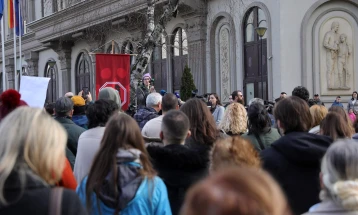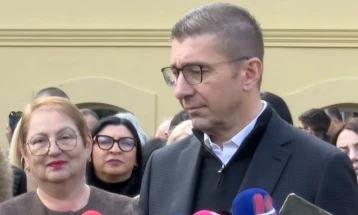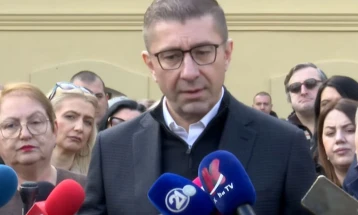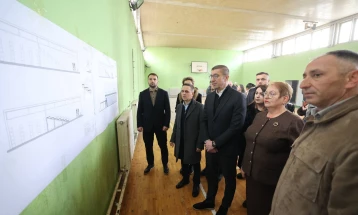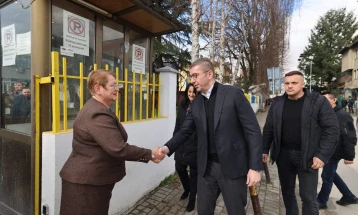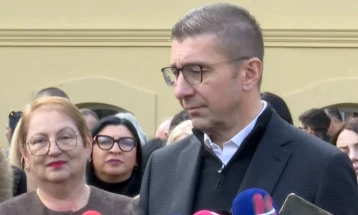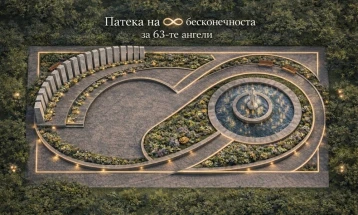Osmani outlines plan for de-escalation, normalization of relations between Kosovo and Serbia
- Minister of Foreign Affairs Bujar Osmani presented Sunday a plan for de-escalation of the situation in the north of Kosovo, and further normalization of relations between Kosovo and Serbia during North Macedonia’s OSCE Chairpersonship.
- Post By Angel Dimoski
- 12:41, 2 July, 2023
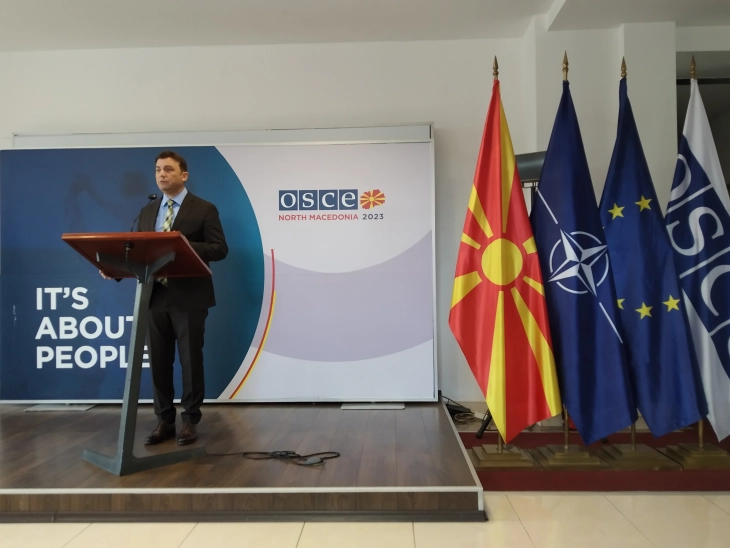
Skopje, 2 July 2023 (MIA) – Minister of Foreign Affairs Bujar Osmani presented Sunday a plan for de-escalation of the situation in the north of Kosovo, and further normalization of relations between Kosovo and Serbia during North Macedonia’s OSCE Chairpersonship.
According to Osmani, the nine-step plan has been delivered to the OSCE Missions to Pristina and Belgrade, and to that end, he said he will hold meetings today with the OSCE Ambassadors to Kosovo and Serbia, accompanied by the OSCE Ambassador to North Macedonia.
“The main topic of today’s meeting will be the nine-step roadmap and the further possible engagement of the missions and the Organization in the implementation of the plan. In the coming period I expect to discuss possible further OSCE engagement with Belgrade and Pristina, as well as with all our other partners and allies, above all with the EU, which is facilitating the dialogue, but also the NATO command, which is present on the ground through KFOR,” said Osmani at Sunday’s press conference.
The Foreign Minister spoke about OSCE's role, highlighting that the organization represents an exceptionally valuable resource that can aid the processes of normalization and building trust.
“OSCE has ground missions in Kosovo, in Serbia, but also here in Skopje. These three points of deep presence in the region are a firm foundation for success of the proposed roadmap. As the first step, the plan foresees that Kosovo and Serbia reaffirm the commitment to the basic agreement and the Ohrid protocol. The agreement from Ohrid is a good agreement, and when we are discussing normalization, the first principle is respect for what has been agreed. We cannot talk about building trust, if there is no implementation of what has been agreed, which is why a reaffirmation of the agreements is a good start,” said the Minister.
Osmani added that the second, third and fourth step are activities that aim to ease tensions on the ground.

“Kosovo to withdraw its Special Police forces, Serbia to reduce its combat readiness. Kosovo’s police, alongside KFOR and EULEX, to be allowed to fully handle order and security in the country. Protests to be canceled and municipal functions and services to be restored. In a way, through these activities, the goal is to return the situation to normal,” clarified Osmani.
After the easing of tensions, according to Osmani, the next two steps aim to clear up the political crisis caused by the local elections. The steps call for the resignation of the mayors in the summer of 2023, paving the way for early municipal elections. The early elections, according to the FM, should be held in 2023 and with the participation of all political entities.

The last three steps of the roadmap outline OSCE’s role in the process.
“OSCE will support the electoral process, by offering technical support to the Kosovo authorities which are organizing the elections, boosting trust between the communities. The Organization will undertake a series of activities to engage youth in reconciliation programs and processes. And, most importantly, OSCE will place its capacities in support of the good faith implementation of the agreed provisions by both sides, and resumption of dialogue. I believe that this is a good plan, and it is in line with several similar proposals that have come from other, multilateral organizations and high political representatives,” said Foreign Minister Osmani.
Photo: MIA
